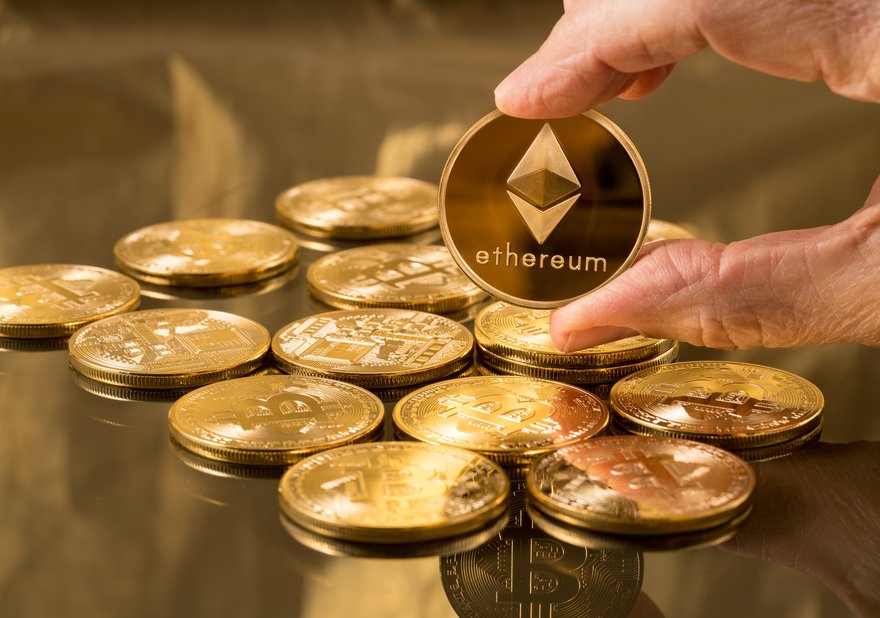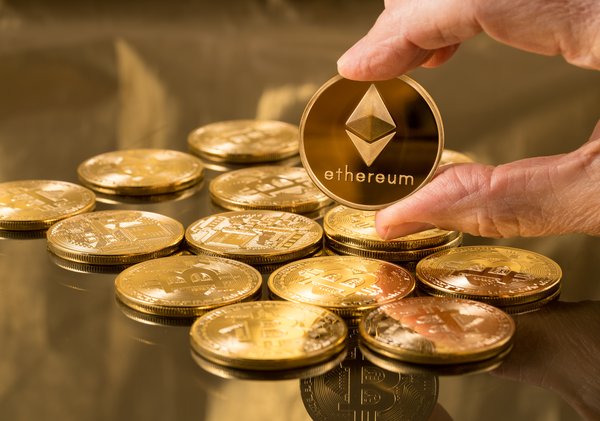Ethereum (ETH 2.7%) exchange-traded funds (ETFs) offer a convenient way to invest in the second-largest cryptocurrency by market capitalization in a manner similar to buying stocks. Today, investors can own ETFs that directly hold spot Ethereum rather than being limited to older, futures-based options.
Cryptocurrency is decentralized and secure digital money, based on blockchain technology, that offers new investment opportunities.
In this article, we’ll explore the available Ethereum ETFs, examine how they are structured, and discuss the benefits they offer. We’ll also provide guidance on how to invest in these ETFs and go over the risks to be aware of.

Image source: Getty Images.
Overview
What is an Ethereum ETF?
The easiest way to understand Ethereum ETFs is to break them down into two main components. Ethereum itself is a blockchain platform with its own cryptocurrency, Ether. It’s widely used for its smart contract functionality, which enables automatic, decentralized agreements that execute when their conditions are met.
Ethereum is a blockchain created in 2015 that is supported by a decentralized network of computers all over the world.
An ETF is an open-ended investment fund that holds assets like stocks, commodities, bonds, or even cryptocurrencies. ETFs are unique because they trade on stock exchanges much like individual stocks, offering the liquidity and accessibility that typical mutual funds do not.
Combining these, an Ethereum ETF is a type of investment fund that either holds spot Ethereum directly or invests in related derivatives such as Ethereum futures contracts.
This setup allows investors to gain exposure to Ethereum’s market movements without buying and holding the actual cryptocurrency through a crypto exchange or dealing with the complexities of digital wallet security. Essentially, when you buy shares of an Ethereum-based ETF, you’re indirectly investing in Ethereum’s performance, with all the trading ease of traditional stocks.
Holdings
What do Ethereum ETFs hold?
Ethereum ETFs in the U.S. used to hold only Ethereum futures contracts, which are traded on the Chicago Mercantile Exchange (CME). These futures allowed investors to speculate on Ethereum’s price without dealing with the security, custody, and regulatory concerns that often come with directly holding cryptocurrency.
Since the U.S. Securities and Exchange Commission (SEC) approved spot Ethereum ETFs in 2024, these funds can now hold Ethereum directly rather than relying on futures contracts. Spot Ethereum ETFs work by storing actual Ethereum in cold storage with a custodian, which is an offline, highly secure method of safeguarding assets against hacks or unauthorized access.
When ETF shares are created or redeemed, a portion of the Ethereum is moved from cold storage to a hot wallet, which is connected to the internet to facilitate transactions. This process ensures that the fund can handle investor demand while maintaining a high level of security for the underlying assets.
What is Ethereum?
What is Ethereum?
Launched in 2013 by Vitalik Buterin, Ethereum is a comprehensive decentralized finance (DeFi) platform for decentralized applications (dApps) and smart contracts that run autonomously without a central authority. Ether is Ethereum’s native cryptocurrency and is essential for operating dApps and executing smart contracts.
It serves as “gas,” paying for the computational resources needed to execute operations and giving Ethereum its value. Ether trades on various cryptocurrency exchanges and is used both as an investment and a utility token. In September 2022, Ethereum underwent a major update, transitioning from a proof-of-work (PoW) to a proof-of-stake (PoS) system.
This shift significantly reduced the platform’s energy consumption by changing how transactions are verified and blocks are added to the blockchain. Instead of miners solving puzzles, validators now stake Ether to earn the right to validate transactions and yield, enhancing Ethereum’s sustainability and scalability.
Spot ETFs
Spot Ethereum ETF approval
While Canadian securities regulators have allowed spot Ethereum ETFs to trade since April 2021, the SEC has been slower to approve similar products. That changed on May 23, 2024, when the SEC greenlit spot Ethereum ETFs, paving the way for their long-awaited launch. These ETFs officially began trading on June 24, 2024, marking a significant milestone for cryptocurrency investing in the U.S.
How to buy
How to invest in Ethereum ETFs
Investing in Ethereum ETFs is straightforward and follows the same procedure as trading any other ETF or stock. Here’s a step-by-step guide to help you get started:
- Figure out your position size: Decide how much of your portfolio you want to allocate to Ethereum ETFs in terms of dollar value. Consider whether this cryptocurrency investment fits with your overall risk tolerance and investment strategy versus regular stocks.
- Pick the right ETF: In the next section, we’ve provided a table of the major Ethereum ETFs currently available. Choose the one that best meets your needs based on factors like fees, liquidity, and past performance.
- Search for the ETF on your brokerage platform: Locate the ETF by typing its full name or ticker symbol into your brokerage’s search function. Make sure you select the option for “shares” or “equity” to ensure you are purchasing the ETF itself and not options based on it.
- Enter an order: Specify the number of shares you want to buy. You can place a market order, which executes the trade at the next available price, or a limit order, which sets a maximum price you are willing to pay and executes only if the share price meets or falls below this threshold.
- Finishing up: If your order is successful, your brokerage account will reflect the purchase, adding the ETF shares and deducting the corresponding amount of cash.
Top three
Top three Ethereum ETFs
Here’s an overview of the largest Ethereum ETFs on the market in terms of assets under management (AUM):
|
Fund Name |
Net Expense Ratio |
|---|---|
|
iShares Ethereum Trust ETF (NASDAQ:ETHA) |
0.25% |
|
Grayscale Ethereum Trust ETF (NYSEMKT:ETHE) |
2.50% |
|
Grayscale Ethereum Mini Trust ETF (NYSEMKT:ETH) |
0.15% |
Outlook
An outlook for Ethereum ETFs
With the successful launch of spot Ethereum ETFs, the next major step is their inclusion in model portfolios, which could drive greater institutional adoption. Model portfolios are pre-allocated investment strategies financial advisors and institutions use to manage client assets.
Related investing topics
Once spot Ethereum ETFs start being incorporated into these portfolios, it could lead to higher inflows and broader acceptance among mainstream investors. Looking ahead, investors should also be on the lookout for enhanced exposure Ethereum ETFs.
These could include products designed to deliver leveraged returns and ETFs that use options strategies to generate income or hedge downside risk. As the Ethereum ETF market evolves, these innovations may provide investors with even more ways to gain exposure to Ethereum while managing risk and optimizing returns.
FAQ
Investing in Ethereum ETFs FAQ
Which Ethereum ETF is best?
There’s no universal answer, but the iShares Ethereum Trust ETF (ETHA) is a great candidate with a relatively low 0.25% expense ratio.
Is there an Ethereum ETF in the U.S.?
Yes, multiple futures- and spot-based Ethereum ETFs are available to U.S. investors.
How to get Ethereum ETFs?
You can buy shares of Ethereum futures ETFs via most brokerage platforms, whether futures- or spot-based.
Is there an Ethereum spot ETF?
Yes, U.S. investors now have access to a number of spot Ethereum ETFs.














